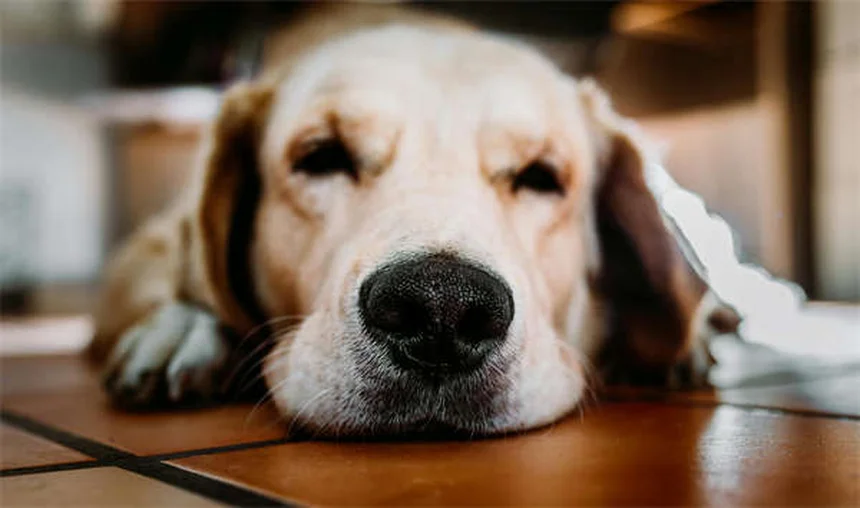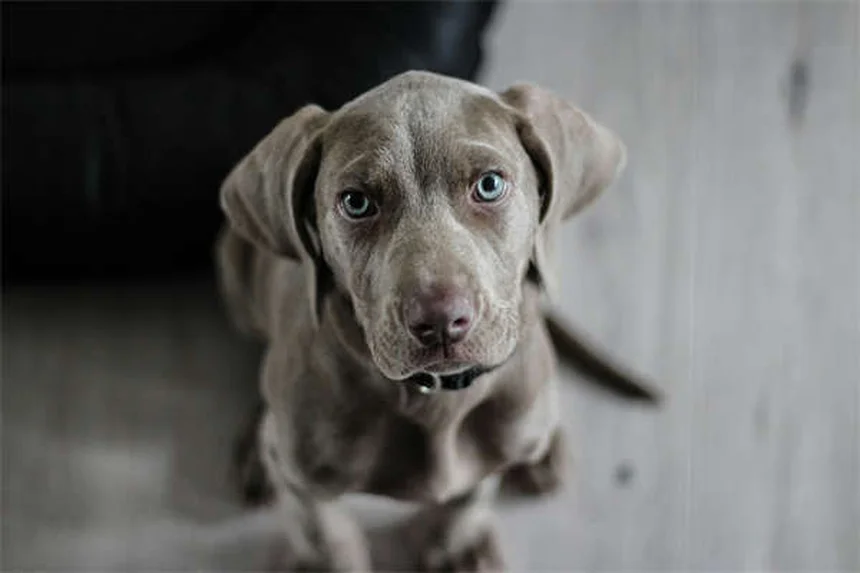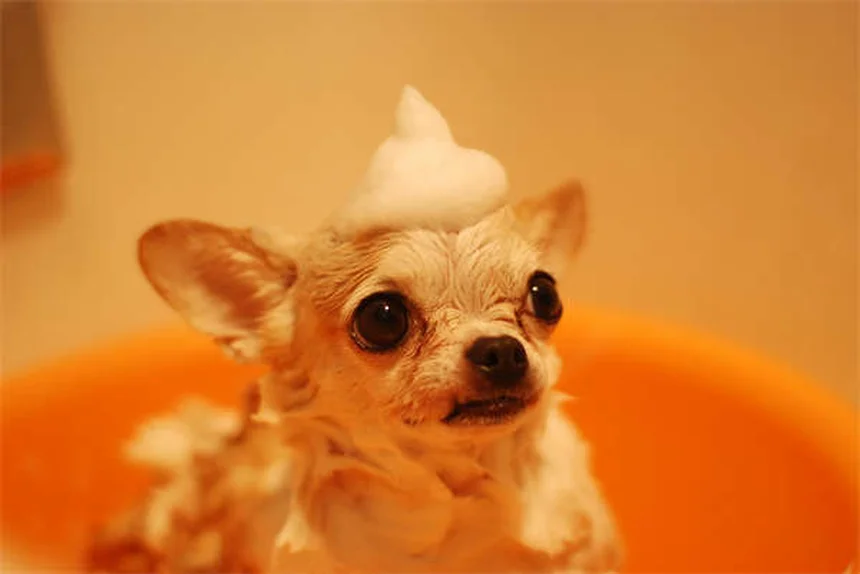What's that slimy stuff in your dog's poop? The answer is: It's mucus, and while a little is normal, too much could signal health issues. If you're seeing clear or whitish jelly-like coating on your dog's stool, you're looking at intestinal mucus. As a dog owner myself, I know how alarming this can look - but don't panic yet! Small amounts are actually part of your pup's normal digestive process, helping stool move smoothly through the intestines.Here's what I've learned from years of dog ownership and consulting with vets: You should worry when the mucus becomes excessive or comes with other symptoms. We're talking about large amounts, frequent occurrences, or mucus paired with diarrhea or blood. In these cases, your furry friend likely needs veterinary attention. But if it's just a one-time small amount and your dog seems otherwise healthy? Just keep an eye on them for now.
E.g. :5 Surprising Reasons Dogs Are Truly Man's Best Friend
- 1、What's That Slimy Stuff in My Dog's Poop?
- 2、The Scoop on Poop: Common Causes of Mucus
- 3、When to Call the Vet About Mucus
- 4、What Your Vet Will Do
- 5、Home Care and Prevention
- 6、Long-Term Management
- 7、Final Thoughts
- 8、The Science Behind Mucus in Dog Poop
- 9、Nutritional Factors You Might Not Know About
- 10、Environmental Triggers Worth Considering
- 11、Behavioral Factors That Affect Digestion
- 12、Age-Related Digestive Changes
- 13、FAQs
What's That Slimy Stuff in My Dog's Poop?
Identifying Mucus in Your Dog's Stool
You know that moment when you're picking up after your pup and suddenly notice something... weird? That shiny, jelly-like coating on your dog's poop is mucus, and while it might look gross, it's actually pretty common. Think of it like your dog's digestive system sending you a text message - sometimes it's just saying "hi," other times it's an all-caps "HELP!"
Here's what to look for:• Clear or whitish slime coating the stool• Jelly-like consistency (not to be confused with undigested fat)• Sometimes appears with diarrhea or blood
When Should You Worry?
Did you know that a small amount of mucus is actually normal in dog poop? It's true! But how much is too much? Let me put it this way - if you're seeing more mucus than a Nickelodeon game show, it's time to call your vet.
Here's a quick comparison of normal vs. concerning mucus situations:
| Situation | Action Needed |
|---|---|
| Small amount, no other symptoms | Monitor for 24 hours |
| Large amounts or frequent occurrence | Vet visit recommended |
| Mucus with blood or diarrhea | Immediate vet attention |
The Scoop on Poop: Common Causes of Mucus
 Photos provided by pixabay
Photos provided by pixabay
Pesky Parasites and Infections
Ever wonder why your dog's digestive system might produce extra mucus? Intestinal invaders like worms or bacteria are often the culprits. These unwelcome guests irritate your pup's gut, causing it to produce more mucus as a defense mechanism.
Common offenders include:• Giardia (the pool party crasher of parasites)• Whipworms (not as fun as they sound)• Salmonella (yes, dogs can get it too)
Diet Disasters and Food Faux Pas
Remember that time your dog raided the trash? That dietary indiscretion might show up as mucus in their stool. Sudden diet changes are another common trigger - their digestive system needs time to adjust to new foods.
Here's a pro tip: When switching foods, do it gradually over 7-10 days. Start with 25% new food mixed with 75% old food, and slowly increase the ratio. Your dog's gut will thank you!
When to Call the Vet About Mucus
Red Flags You Shouldn't Ignore
Is your dog's mucus situation an emergency? Here's a simple way to tell: if you'd call the doctor for similar symptoms in yourself, it's probably worth a vet visit.
Watch for these warning signs:• Loss of appetite (especially concerning if your dog normally eats like a vacuum cleaner)• Lethargy or unusual behavior• Blood in the stool (never normal)• Weight loss without diet changes
 Photos provided by pixabay
Photos provided by pixabay
Pesky Parasites and Infections
Puppies, senior dogs, and dogs with existing health conditions need special consideration. Their immune systems aren't as robust, so what might be a minor issue for an adult dog could be serious for them.
Think of it like this: A small amount of mucus in a healthy adult dog might be nothing, but in a puppy it could signal something serious like parvovirus. When in doubt, it's always better to err on the side of caution.
What Your Vet Will Do
The Diagnostic Process
Ever wonder what actually happens during a vet visit for mucus in stool? First, your vet will play detective - asking about your dog's history, diet, and symptoms. Then comes the physical exam (yes, that includes checking your dog's temperature the fun way).
Common tests might include:• Fecal exam (looking for parasites under a microscope)• Blood work (checking for infections or inflammation)• Ultrasound (getting an inside look at those guts)
Treatment Options
Treatment depends on the underlying cause, but might include:• Dewormers for parasites• Antibiotics for bacterial infections• Special diets for food sensitivities• Probiotics to restore gut health
Here's something interesting: Did you know that sometimes the simplest treatments work best? For many mild cases, a bland diet of boiled chicken and rice can work wonders while your dog's system recovers.
Home Care and Prevention
 Photos provided by pixabay
Photos provided by pixabay
Pesky Parasites and Infections
For mild cases where your dog is otherwise healthy, you might try:• Pumpkin puree (not pie filling!) for fiber• Probiotics specifically formulated for dogs• Temporary bland diet (chicken + rice)
But remember: Home remedies are only appropriate for mild cases in otherwise healthy adult dogs. If symptoms persist more than 24 hours or worsen, skip the home treatment and call your vet.
Keeping Your Dog's Gut Happy
Prevention is always better than cure! Here are some tips to keep your dog's digestive system running smoothly:• Stick to a consistent, high-quality diet• Avoid sudden food changes• Keep up with parasite prevention• Provide plenty of fresh water• Limit access to garbage and questionable snacks
Think of it like maintaining a car - regular maintenance prevents breakdowns. The same goes for your dog's digestive system!
Long-Term Management
Chronic Conditions
For dogs with ongoing issues like IBD, management might include:• Prescription diets• Medications to control inflammation• Regular vet check-ups• Stress reduction (yes, dogs get stressed too!)
Here's a comforting thought: With proper management, most dogs with chronic digestive issues can live happy, normal lives. It just takes some extra attention to their needs.
The Power of Observation
Becoming a poop detective is one of the best things you can do for your dog's health. Regular monitoring helps you catch problems early when they're easiest to treat.
Ask yourself: What's normal for my dog? Every dog is different - some produce firm stools like clockwork, others have more variation. Knowing your dog's "normal" makes it easier to spot when something's off.
Final Thoughts
When in Doubt, Check It Out
Mucus in dog poop is like that weird noise your car makes - sometimes it's nothing, sometimes it's serious. The key is knowing when to worry and when to wait.
Remember: You know your dog better than anyone. If something seems off, trust your instincts. Your vet would much rather reassure you that it's nothing serious than have you wait until a small problem becomes big.
Building a Healthy Relationship With Your Vet
Don't be embarrassed to talk about poop! Vets discuss bodily functions all day long. In fact, they appreciate owners who pay attention to these details.
Here's a pro tip: Take photos of abnormal stools to show your vet. It might feel weird, but it gives your vet valuable information without having to preserve the actual sample (phew!).
The Science Behind Mucus in Dog Poop
Why Dogs Produce Intestinal Mucus
Your dog's gut is smarter than you might think! That slimy mucus actually serves several important purposes. It acts like a lubricant, helping food move smoothly through the intestines. But here's the cool part - it also contains antibodies that fight off harmful bacteria!
Think of it like your dog's internal security system. When everything's working normally, mucus production stays balanced. But when trouble shows up - whether it's bad bacteria, parasites, or irritation - the gut ramps up mucus production as a defense mechanism. It's basically your dog's body saying "Intruder alert!"
The Gut-Brain Connection in Dogs
Did you know your dog's digestive system talks to their brain? It's true! When your pup gets stressed or anxious, their gut often responds by producing more mucus. That's why you might notice mucus in their stool after:
• A stressful vet visit• Boarding while you're on vacation• Loud noises like fireworks or thunderstorms• Changes in their routine or environment
This gut-brain connection works both ways too. An upset stomach can actually make your dog feel more anxious. It's like when you get butterflies before a big presentation - except for dogs, it might show up in their poop!
Nutritional Factors You Might Not Know About
Hidden Food Sensitivities
You've probably heard about food allergies causing skin issues, but did you know they can trigger mucus production too? Common culprits include:
| Ingredient | Percentage of Dogs Affected |
|---|---|
| Beef | 34% |
| Dairy | 28% |
| Chicken | 25% |
| Wheat | 18% |
Here's something interesting - food sensitivities can develop at any age. That kibble your dog's been eating for years might suddenly start causing problems. If you notice persistent mucus, an elimination diet might help identify the offender.
The Fiber Factor
Fiber plays a huge role in your dog's digestive health, but getting the right amount is key. Too little fiber can cause constipation, while too much might lead to - you guessed it - excess mucus production.
Good fiber sources for dogs include:• Pumpkin (plain canned pumpkin, not pie filling)• Sweet potatoes• Green beans• Psyllium husk (vet-approved amounts only)
Remember that dogs process fiber differently than humans. What works for your morning cereal might not be ideal for your pup. When in doubt, ask your vet about the right fiber balance for your dog's specific needs.
Environmental Triggers Worth Considering
Seasonal Changes and Your Dog's Gut
Just like humans might get seasonal allergies, dogs can experience digestive changes with the weather. Many owners report seeing more mucus in their dog's stool during:
• Spring (when plants start blooming)• Summer (especially during heat waves)• Fall (when leaves start decomposing and dogs might eat them)
Is your dog more likely to have digestive issues in certain seasons? Pay attention to patterns - you might notice they always get a little mucus-y when the seasons change. This could be related to changes in what they're sniffing, licking, or even drinking from puddles.
The Water Source Connection
Here's something most dog owners never think about - your dog's water bowl might be contributing to mucus production. Stagnant water can grow bacteria, and some dogs are sensitive to tap water additives like chlorine.
Try these simple fixes:• Wash water bowls daily with hot soapy water• Consider filtered water if your tap water has strong chemical smells• Replace plastic bowls with stainless steel or ceramic• Keep multiple water sources available if you have a multi-dog household
You'd be surprised how often simple changes like these can make a difference in your dog's digestive health!
Behavioral Factors That Affect Digestion
The Scavenging Problem
Does your dog eat everything in sight during walks? This common behavior - called pica - can definitely lead to mucus in their stool. When dogs eat non-food items like:
• Grass• Dirt• Rocks• Trash• Other animals' poop
Their digestive system has to work overtime to deal with these foreign objects. The result? Extra mucus production as their body tries to protect itself and move these items through.
Exercise and Digestion
Here's a fun fact - regular exercise actually helps keep your dog's digestive system moving properly. Dogs that don't get enough activity are more prone to:
• Sluggish digestion• Constipation• Irregular bowel movements• Excess mucus production
But there's a catch - too much intense exercise right after eating can cause problems too. Aim for a balanced approach - regular moderate exercise with rest time after meals. Your dog's gut will thank you!
Age-Related Digestive Changes
Puppy Digestive Systems
Puppy tummies are like brand-new engines - they're still learning how to run efficiently. It's completely normal for puppies to have some mucus in their stool as their digestive system develops. But here's what makes puppies different:
• Their gut microbiome is still developing• They're more susceptible to parasites• They explore the world with their mouths (and eat everything)• Their immune systems aren't fully developed yet
This is why puppy poop often looks different than adult dog poop. But remember - while some mucus might be normal, excessive amounts or other symptoms always warrant a vet visit for puppies.
Senior Dog Considerations
As dogs age, their digestive systems change too. Older dogs often produce less digestive enzymes naturally, which can lead to:
• Poorer nutrient absorption• More sensitive stomachs• Changes in stool consistency• Increased mucus production
Many vets recommend digestive enzyme supplements for senior dogs. These can help break down food more effectively and reduce gut irritation that leads to excess mucus. Always check with your vet before starting any new supplements though!
E.g. :Mucus in Dog Poop | PetMD
FAQs
Q: Is mucus in dog poop always a bad sign?
A: Not necessarily! A small amount of mucus in your dog's stool is completely normal - it's actually produced by the intestines to help with digestion. Think of it like your dog's gut sending a little "everything's working fine" message. However, if you're seeing large amounts, frequent mucus, or it's accompanied by other symptoms like diarrhea, vomiting, or blood, that's when you should be concerned. As a rule of thumb, if the mucus makes you go "eww" rather than just "hmm," it's probably time to call your vet.
Q: What are the most common causes of mucus in dog poop?
A: From my experience, dietary issues and parasites top the list. Sudden food changes, eating something they shouldn't (like that garbage raid last Tuesday), or food allergies can all trigger mucus production. Parasites like Giardia or worms are another big culprit - these unwelcome guests irritate the intestines, causing extra mucus. Other potential causes include bacterial infections, inflammatory bowel disease, or even stress. The key is looking at the whole picture - is your dog acting normal otherwise? That context helps determine how urgent the situation is.
Q: When should I take my dog to the vet for mucus in their stool?
A: Immediately if you see blood, your dog seems sick, or if it's a puppy/senior dog. For healthy adult dogs, I recommend watching for 24 hours if it's just a small amount of mucus. But don't wait if you notice other red flags like loss of appetite, lethargy, or weight loss. Pro tip: Take photos of the abnormal stool to show your vet - it's less gross than bringing in a sample and gives the vet valuable visual information!
Q: Can I treat mucus in my dog's poop at home?
A: For mild cases in otherwise healthy dogs, yes - with some important caveats. A bland diet of boiled chicken and white rice can work wonders, and adding a bit of plain canned pumpkin (not pie filling!) can help soothe their gut. Probiotics made specifically for dogs may also help restore balance. But here's what I always tell fellow dog owners: If things aren't improving within 24 hours, or if your dog seems off in any way, skip the home remedies and get professional help. It's better to be safe than sorry when it comes to our furry family members.
Q: How can I prevent mucus in my dog's stool?
A: Consistency is key when it comes to prevention. Stick to a high-quality diet and make any food changes gradually over 7-10 days. Keep up with parasite prevention (those monthly treatments matter!), and try to limit your dog's access to garbage or questionable snacks. Stress reduction helps too - yes, dogs get stressed just like we do! Regular exercise, routine, and plenty of fresh water all contribute to a healthy digestive system. Remember, an ounce of prevention is worth a pound of cure - or in this case, worth avoiding those slimy surprises in the poop bag!



Discuss